 Petzlover
Petzlover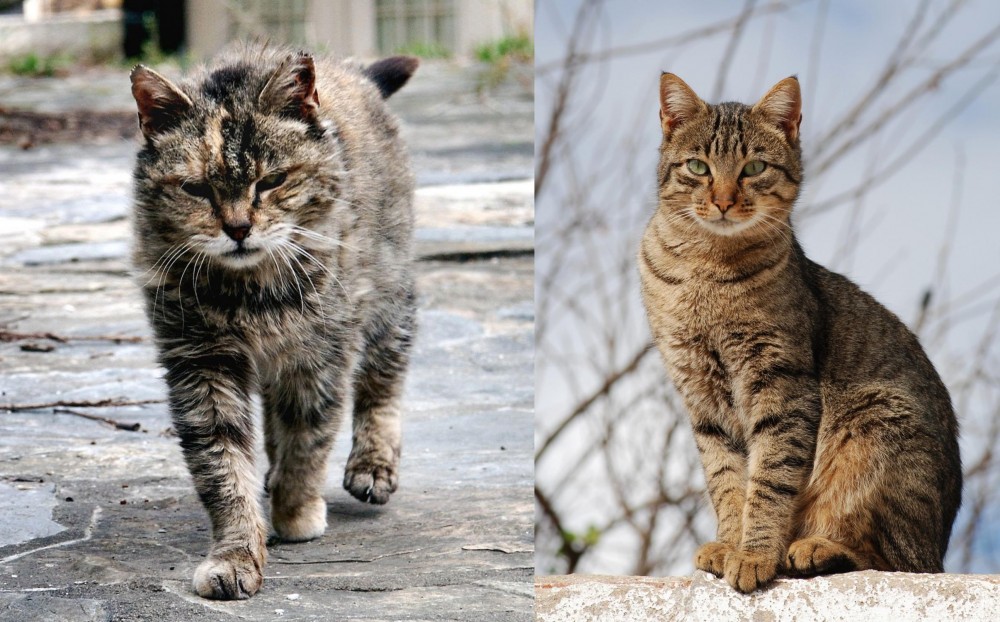 Farm Cat is originated from United States but Tabby is originated from United Kingdom. Both Farm Cat and Tabby are having almost same weight. Both Farm Cat and Tabby has same life span. Both Farm Cat and Tabby has same litter size. Both Farm Cat and Tabby requires Moderate Maintenance.
Farm Cat is originated from United States but Tabby is originated from United Kingdom. Both Farm Cat and Tabby are having almost same weight. Both Farm Cat and Tabby has same life span. Both Farm Cat and Tabby has same litter size. Both Farm Cat and Tabby requires Moderate Maintenance.
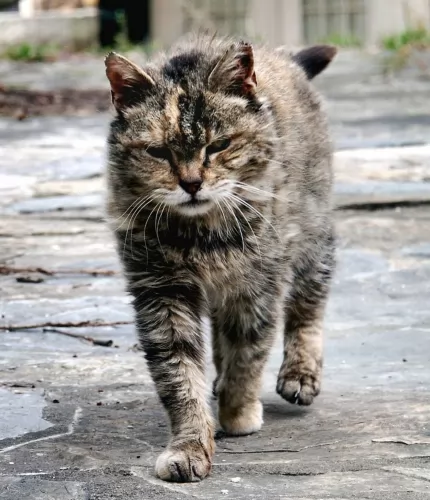 Known also as the Barn Cat, this domestic cat is of a mixed breed. The very name ‘farm cat’ is referring to a general kind of cat that lives in an almost wild state on farms and agricultural properties.
Known also as the Barn Cat, this domestic cat is of a mixed breed. The very name ‘farm cat’ is referring to a general kind of cat that lives in an almost wild state on farms and agricultural properties.
Possibly, their role in keeping rodents at bay was how they came about – domesticated to keep rodents away from grain crops.
When you do research you find that there is archeological evidence to suggests that these farm cats have been around since about 7500 BC. Most barn cats fall under the domestic shorthair or domestic longhair categories.
These cats live in a variety of conditions and some of them get their food solely from the rodents they catch. Others are tame with access to supplemental cat food as well as veterinary care.
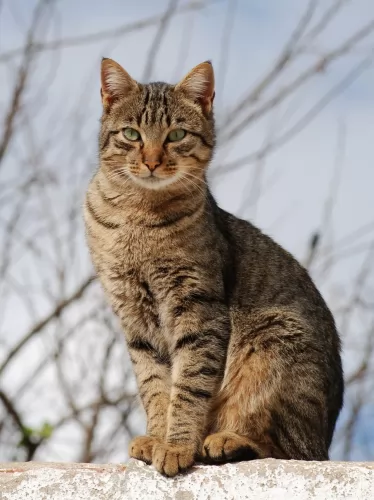 The Tabby isn’t a cat breed but rather a certain cat pattern. So the Tabby has lots of different coat colors and patterns and the cat comes in different sizes.
The Tabby isn’t a cat breed but rather a certain cat pattern. So the Tabby has lots of different coat colors and patterns and the cat comes in different sizes.
You get the mackerel Tabby, the classic Tabby, the spotty Tabby and the ticked Tabby. The Tabby is a domestic cat. It is thought that today’s Tabby’s originated from the African wild cat because the markings are so similar.
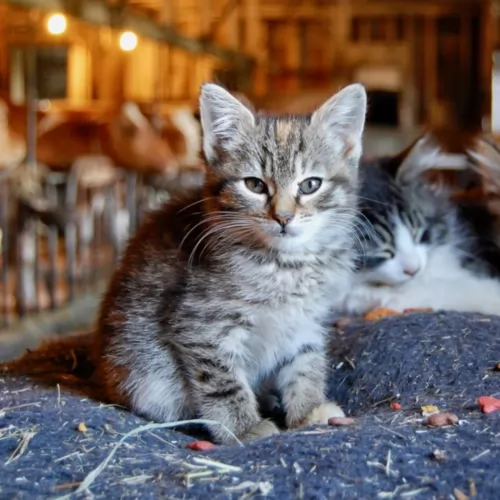 Farms cats are also members of domestic cats but it’s just that they are usually not socialized and they run away from people.
Farms cats are also members of domestic cats but it’s just that they are usually not socialized and they run away from people.
Farm cats have different histories and there is really no one-size-fits-all description of them.
They can weigh anything from 2 to 8kg. They can live to be anything between 10 and 20 years of age. Some of them are large, some small, some are solid colored while others are bi-colored and patterned. Their coats differ too and you can find short- and long-haired varieties among your farm cats
Their eyes and ears will also be in any shades and sizes and these cats are usually not spayed or neutered and can produce kittens that nobody is sure how they’ll turn out.
If you were to stumble across a farm cat born of unknown parents, there is no knowing what the small feline will behave like. Socialization and lifestyle play a big role in determining how a kitten will turn out but farm cats left to their own devices could be quiet, aggressive, loving, naughty, reticent, reserved, playful, lazy, shy or nervous.
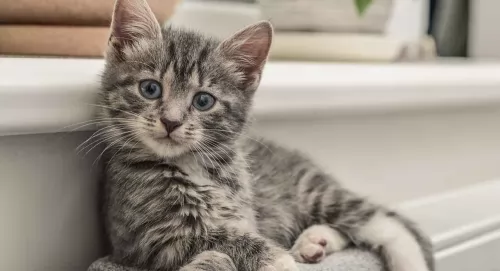 The Tabby is any domestic cat. They’ve got a distinctive 'M' shaped marking on their forehead.
The Tabby is any domestic cat. They’ve got a distinctive 'M' shaped marking on their forehead.
The Tabby cat isn’t a breed of cat but actually a coat type and in fact, there are quite a few cat breeds with the Tabby pattern.
Tabby is a color pattern in other words and it means you will find stripes, spots, and whorls of color. Tabby cats can range in size because of the different breeds. They can be medium to large and weight between 3 and 7kg.
The eye and ear shape will also vary according to the different breeds as well as the thickness of the tail.
Your Tabby is a friendly, social cat. He makes an excellent pet and companion. The orange and ginger tabbies are more feisty and strong-willed. These cats cat can be any personality really and you might have an aloof cat but you could also have a highly social, vocal Tabby.
Most times you will get an active, playful, friendly cat that will love the company of his human family.
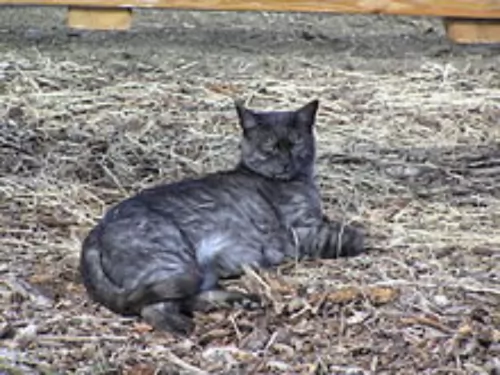 Farm cats are such wonderful animals – they just need a good chance in life like other domestic cats.
Farm cats are such wonderful animals – they just need a good chance in life like other domestic cats.
Many of them have had a hard life and it can be marvelous to open your home and heart to one or two of them and see the pleasure they bring.
They’re full of character and if you provide them with good food and a warm bed and promise to love them, you’ll no doubt be starting a solid and meaningful friendship that can enhance your life.
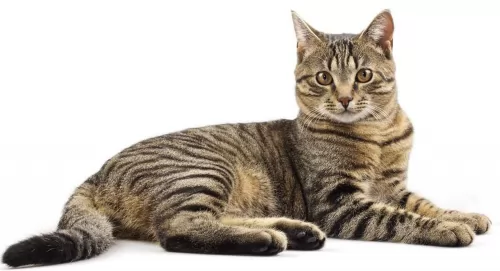 When you bring a Tabby cat into your home, you can't tell what personality he will have. A lot depends on the lifestyle you provide him with.
When you bring a Tabby cat into your home, you can't tell what personality he will have. A lot depends on the lifestyle you provide him with.
Some Tabby cats are social and friendly while others are more shy. One thing is sure, they all thrive on the love and attention of their human families. This popular cat is guaranteed to make you a most wonderful pet and companion.
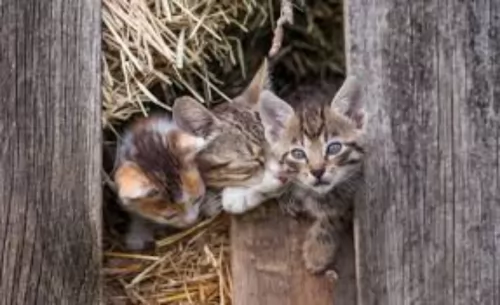 Farm cats left to fend for themselves can suffer from a host of illnesses. Eye infections are one. The cause of these eye infections is usually a virus, of which herpes, chlamydia, and Calicivirus are the most common.
Farm cats left to fend for themselves can suffer from a host of illnesses. Eye infections are one. The cause of these eye infections is usually a virus, of which herpes, chlamydia, and Calicivirus are the most common.
Your vet will certainly prescribe you some antibiotics for your kitten to help against secondary infections.
Check your farm kitten over as he is likely to have a nose full of snot as well and may even be sneezing. Take the kitten to the vet who can give him a good once-over and put him on the road to recovery.
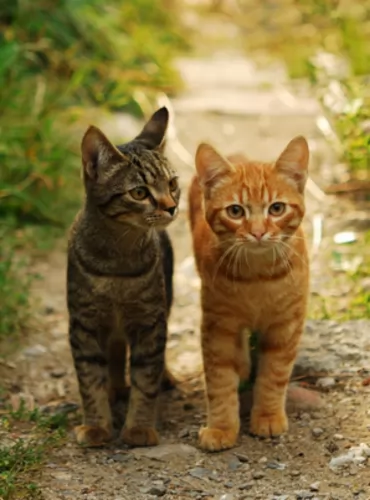 Many cats can develop liver and kidney troubles as they get older so it’s important to visit a vet regularly in order to make sure they are in good health.
Many cats can develop liver and kidney troubles as they get older so it’s important to visit a vet regularly in order to make sure they are in good health.
Most domesticated tabby cats live for 12 to 15 years and this means you can enjoy many years of good friendship from your Tabby.
The liver is an important organ with a host of functions. We know it plays an important role in removing toxic substances from the blood. Because this organ works to rid the body of so many different substances, it can become damaged.
Liver disease results in inflammation, which is known as hepatitis. If left, it can lead to loss of function because of scar tissue. Luckily, liver disease in cats can be treated and managed,
Age, certain diseases and certain breeds of cats are more susceptible to liver disease. Obesity too, can contribute to liver disease. The signs of liver disease are weight loss, increased thirst, vomiting, drooling, jaundice and loss of appetite.
If your cat is diagnosed with liver disease, speak to your vet about a special diet for your cat.
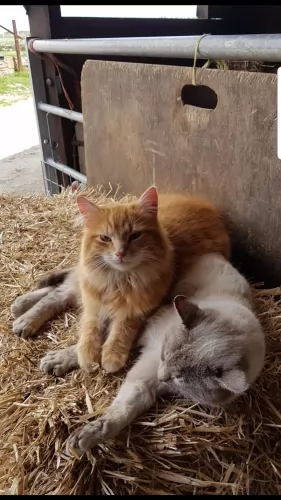 Barn cats or farm cats are not likely to have been neutered or spayed and they are just adding to the overpopulation of farm cats that can become feral cats.
Barn cats or farm cats are not likely to have been neutered or spayed and they are just adding to the overpopulation of farm cats that can become feral cats.
The average fertile cat can produce three litters every year, and with as many as 6 kittens in a litter, you can imagine how a small colony of cats can get out of control.
Sometimes cat rescue programs do a steri-drive and spay and neuter cats like this to curb the numbers. Of course, spaying and neutering can prevent many diseases as well.
If you have farm cats that have been spayed or neutered, provide them with good food and water. You can put out wet, canned cat food or dry kibble – they’ll be so pleased as most times these cats don’t even know where their next meal will come from.
You see them drinking out of puddles of water. Unfortunately, these pools are often filled with contaminants and this can also make the cats sick.
Every cat just wants a soft, warm place to sleep, and if you can, provide some warm dry hay for these farm cats. Even a cardboard box can be a haven for a cat that has never known a bed.
If you have managed to catch a farm cat kitten and you want to offer it a home, make sure to start off with veterinary care and vaccines.
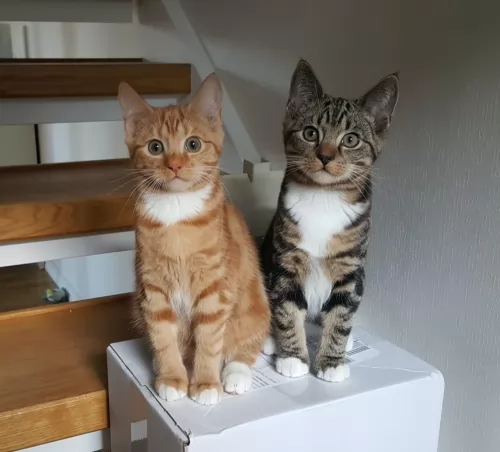 When your cat is a Tabby, he could have short or long fur, and a weekly brushing will be necessary to remove dead hairs and dust from the coat.
When your cat is a Tabby, he could have short or long fur, and a weekly brushing will be necessary to remove dead hairs and dust from the coat.
While you brush your cat, feel for any irregularities such as lumps or cuts. A lump should be examined by the vet.
As already mentioned, good food is key to good health, and as your cat is a carnivore, he will require meat. There are many excellent cat food manufacturers who produce cat food with all the nutrients your feline friend requires.
If your pet needs to be transported anywhere, such as to the vet, make sure he can be carried safely by putting him in a cat carrier box.